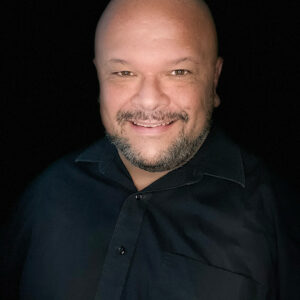Adult Learning Theories And Principles Simplified
Teaching adults, or andragogy, as a topic, exists quite simply as a contrast to the topic of the teaching of children, pedagogy. There are so many reference materials available that overview the principles of adult learning that it feels wrong to cite any specific one. Yet even with all the articles, books, and lists available, the principles of adult learning can still seem confusing.
So here it is restated plainly:
"Adults are complicated and can be difficult because they’ve lived longer and are more mature than children."
Adults approach educational materials with biases, preset conceptions, socialized understandings, professional competencies, life experiences. They’ve lived longer, and have more autonomy and agency in the world than children. Their life experience makes them complex, and the autonomy that comes with adulthood has given the agency. Their internal reference libraries are more complex. They’ve succeeded, failed, trusted, and been burned…
They’ve just lived through more stuff.
Indeed, that’s why there are so many resources out there about the subject of adult learning. Adults don’t just need to learn, they need to unlearn, contextualize, experience, engage, dissect, challenge, and discuss. They need to understand things in the context of their own experience. The adult learning principles outline an approach to teaching that helps us identify and prepare for the complexity unique to the adult learner.
That’s it! Now you know. But of course, you are likely to be an adult and need more information because that was too simple, and you are complex and difficult.
Or, maybe you’re an experienced educator or Instructional Designer, and this fits very nicely into your existing paradigms so you just say, this is nothing new and move on.
Either way, below, there is a more detailed breakdown of this simple statement per adult learning principle:
1. Adults Have A Sense Of Self
Essentially this principle tells us that adults aren’t altogether confused about the way the world works and their agency within it. There are likely plenty of valid arguments to be had here about adulthood, and what it means to have confidence in self-concept, but that’s not what this is about. Instead, this principle is really a reminder that adults have a more developed sense of self than children.
As educators, this encourages us to respect the learner differently in the educational relationship. We cannot simply count our position of authority as a teacher, but rather address the learner as an equal (or sometimes elder) in the journey of life. We have to think through the spaces for adults to assert their self in the learning and prepare for the potential that they may challenge or even outright dismiss ideas that do not sync well with their sense of self.
2. Adults Have Experience
This principle reminds us that adults have a different, layered and more complex set of experiences than children. These experiences may be either constructive or detrimental to the learning experience but are always a factor.
As educators, this challenges us to create spaces where adults are able to share or wrestle with their experiences in relation to the material. Accepting the complexity of adult experiences can help us create a rich learning environment but requires facilitation to keep it within the parameters of the subject matter.
These last 3 principles, I’m summarizing together as: Adults come to learning with their own agenda.
3. Readiness To Learn Is Based On Life Circumstances
4. Orientation To Learning Is More Immediate
5. Motivation For Learning Is Internally Driven
These remind us that adults have internally and externally motivated goals that brought them to the learning relationship. They may be learning to get a better job, to enrich their own understanding of something, to become an expert and go on to teach the materials… Whatever their reasons may be these are increasingly driven by internal achievement goals, external advancement possibilities, and immediate needs or problems that they are looking to address.
As educators, we should consider the motivational factors that frame the adult’s experience of our content. Figuring out why they are entering into the learning relationship, and what the learning may help them accomplish can help us better shape their learning experience.
In summary, the adult learning principles help us think through the complexity and difficulty associated with the adult learner as different than the child learner. This is not to say that teaching children does not come with its own set of challenges and complexities. And I’m also not writing this to categorize one as easier or harder than the other. It is simply a reminder that adults are different and require a unique approach: one that takes into consideration the complexity that comes with lived experience.
References:
- “Malcolm Knowles, Informal Adult Education, Self-Direction and Andragogy.” Infed.org. http://infed.org/mobi/malcolm-knowles-informal-adult-education-self-direction-and-andragogy/ (accessed April 8, 2019)
- Pappas, Christopher. “The Adult Learning Theory - Andragogy - of Malcolm Knowles.” Elearningindustry.com. https://elearningindustry.com/the-adult-learning-theory-andragogy-of-malcolm-knowles (accessed April 8, 2019)
- Russell, Linda. “The Fundamentals of Adult Learning.” Td.org. https://www.td.org/newsletters/atd-links/the-fundamentals-of-adult-learning (accessed April 8, 2019)









